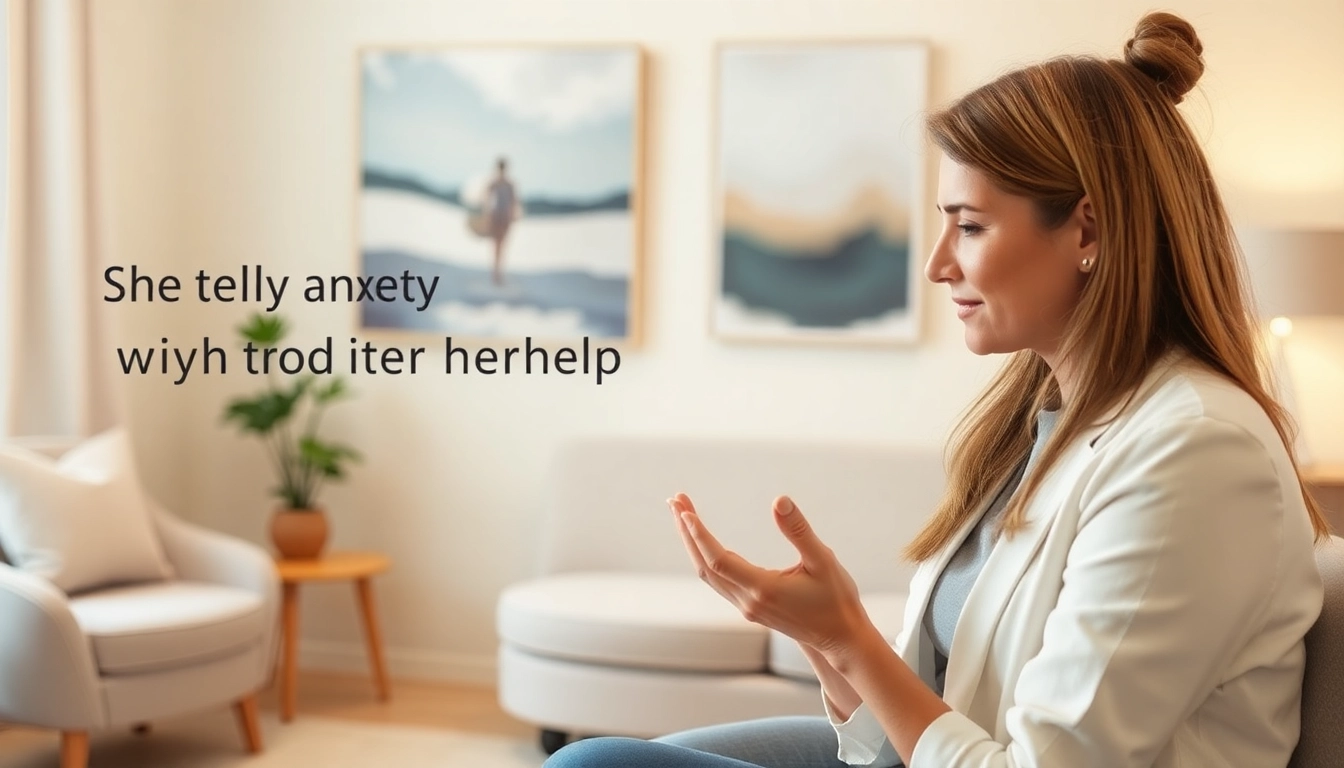What is Anxiety?
Anxiety is a complex emotional experience that can affect anyone at various points in their lives. Often characterized by feelings of dread, uneasiness, and apprehension, anxiety can arise as a reaction to stress or fear. While everyone experiences anxiety to some degree, it can manifest in severe forms for some individuals, leading to anxiety disorders that may require professional treatment. If you are seeking more information on this topic, you can explore anxiety further.
Defining Anxiety and Its Types
Anxiety encompasses a spectrum of emotions and responses. It can be classified into various types, which include:
- Generalized Anxiety Disorder (GAD): Persistent and excessive worry about different aspects of life.
- Panic Disorder: Recurrent panic attacks characterized by intense fear and physical symptoms like heart palpitations.
- Social Anxiety Disorder: Intense fear or avoidance of social situations due to anxiety about judgment or embarrassment.
- Specific Phobias: Irrational fear of a particular object or situation, causing significant distress.
- Separation Anxiety Disorder: Excessive fear about separation from attachment figures, often seen in children.
Common Symptoms of Anxiety
Anxiety can manifest through a range of emotional and physical symptoms. Key manifestations include:
- Restlessness or feeling keyed up.
- Rapid heartbeat or palpitations.
- Difficulty concentrating or mind going blank.
- Sweating, trembling, or shaking.
- Fatigue or sleep disturbances.
How Anxiety Differs from Everyday Worry
While everyday worry is a normal response to stress, anxiety becomes problematic when it is persistent and disruptive. Individuals experiencing anxiety disorders often find their worries are disproportionate to the actual situation, leading to impairments in daily functioning and emotional well-being.
Causes and Triggers of Anxiety
Biological Factors Influencing Anxiety
Research indicates that biological factors, including neurotransmitter imbalances and genetic predispositions, play a significant role in the development of anxiety disorders. Chemicals in the brain, such as serotonin and dopamine, are crucial for mood regulation. Disruptions in these systems can lead to heightened anxiety responses.
Environmental and Psychological Triggers
External factors such as stressful life events, trauma, and ongoing stressors can trigger anxiety episodes. Psychological aspects, including personality traits and specific thought patterns, may also make individuals more prone to anxiety. Establishing connections between events, thoughts, and emotions can help identify triggers.
Role of Genetics in Anxiety Disorders
Genetic factors significantly influence the likelihood of developing anxiety disorders. Family studies have shown that anxiety disorders can run in families, suggesting that certain genetic profiles might increase vulnerability. However, genetics alone does not determine the outcome; environmental influences play a critical role as well.
Recognizing Anxiety Disorders
Different Types of Anxiety Disorders
Beyond Generalized Anxiety Disorder and panic disorder, other types of anxiety disorders include:
- Agoraphobia: Fear of being in situations where escape might be difficult.
- Obsessive-Compulsive Disorder (OCD): Presence of intrusive thoughts leading to compulsive behaviors.
- Post-Traumatic Stress Disorder (PTSD): Anxiety stemming from experiencing or witnessing traumatic events.
Diagnostic Criteria for Anxiety Disorders
The Diagnostic and Statistical Manual of Mental Disorders (DSM-5) provides criteria for diagnosing various anxiety disorders. Key aspects include the presence of symptoms for a prolonged period, their impact on daily life, and the exclusion of other conditions that may cause similar symptoms.
When to Seek Professional Help for Anxiety
If anxiety symptoms interfere with your daily life, relationships, or work, it is crucial to seek professional help. Early intervention can lead to more effective treatment outcomes and decrease the duration and severity of symptoms.
Treatment Options for Anxiety
Understanding Therapy Methods for Anxiety
Therapy is often a fundamental part of treating anxiety. Cognitive Behavioral Therapy (CBT) is particularly effective for anxiety disorders. CBT focuses on identifying and changing negative thought patterns and behaviors that contribute to anxiety. Other therapeutic approaches include:
- Exposure Therapy: Gradual exposure to anxiety-provoking stimuli to reduce fear response.
- Dialectical Behavior Therapy (DBT): Incorporating mindfulness practices to help manage emotions.
Medications Commonly Prescribed for Anxiety
Medications can complement therapy for treating anxiety. Common classes include:
- Selective Serotonin Reuptake Inhibitors (SSRIs): Help balance serotonin levels in the brain.
- Benzodiazepines: Provide short-term relief for acute anxiety symptoms but are not recommended for long-term use.
- Buspirone: An anti-anxiety medication that may help reduce symptoms without the sedative effects of benzodiazepines.
Alternative Treatments and Self-Help Strategies
Numerous alternative treatments can complement traditional approaches for anxiety. These include:
- Mindfulness and meditation practices to enhance focus on the present.
- Regular exercise, which releases endorphins and can improve mood.
- Adequate sleep and nutrition to help manage stress levels.
Coping Mechanisms for Managing Anxiety
Practicing Mindfulness and Relaxation Techniques
Mindfulness practices encourage living in the present moment and can significantly reduce anxiety. Techniques such as deep breathing, progressive muscle relaxation, and guided imagery can help manage anxiety symptoms effectively.
Building Support Networks for Anxiety Management
Engaging with supportive communities, friends, and family can help those coping with anxiety feel less isolated. Support groups provide a space for individuals to share their experiences and learn from others’ coping strategies.
Developing a Long-Term Plan for Anxiety
Managing anxiety is often a long-term process. Developing a personal self-care plan that includes therapy, medication (if needed), lifestyle changes, and methods for coping with stress can provide a structured approach to managing anxiety over time.
